Unlike many other animals, roosters don’t have penises. However, they are fertile enough to reproduce. What roosters have are papillae – small bumps in their cloacas which enable them to mate successfully with hens. In a process called the cloacal kiss, the rooster passes his sperm to the hen, which lays eggs as a result.
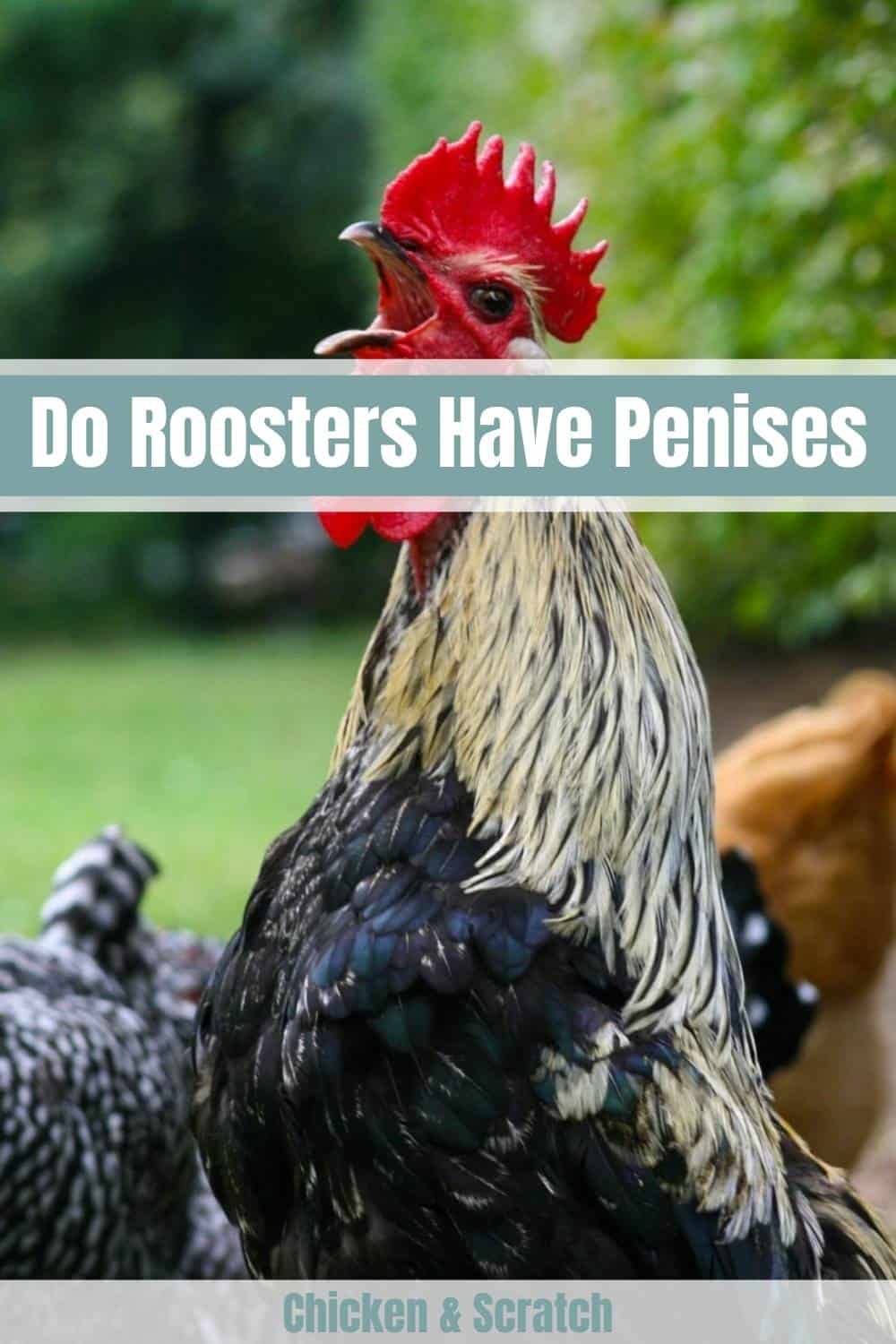
The Rooster’s Reproductive Organs
As mentioned earlier, roosters do not have penises. Roosters do not poses a penis, but they have their own unique set of reproductive parts that we’ll explore.
Even though roosters don’t have an external penis like mammals do, they do possess a special structure inside their cloaca. This non-erectile anatomical feature is what allows them to transfer sperm to the female during copulation for successful fertilization of eggs.
Roosters have special reproductive organs to help them mate and fertilize eggs. The testes are the main organs – they produce sperm which move through ducts before reaching the cloaca, where they’re stored in spermatic ducts until it’s time to mate.
The rooster has an intriguing way of reproducing – namely, with the aid of a small structure known as the phallus or cloacal protuberance. This structure enables them to safely deposit sperm into the hen’s reproductive tract so that it can travel through her oviduct to fertilize her eggs.
But why is this information important? Knowing the reproductive parts of your roosters is an important part of the breeding process. Also, it can help you recognize illnesses and problems in your rooster’s reproductive system.
How Do Roosters Mate?
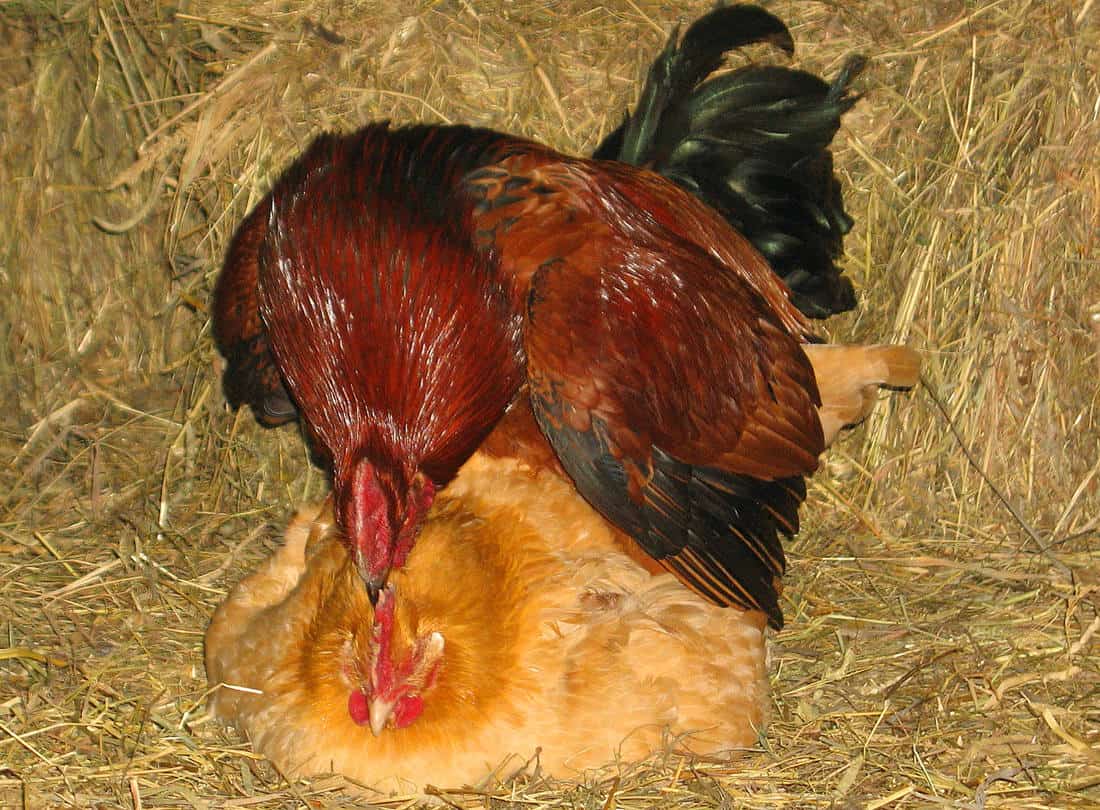
Now that we know the basics of the rooster’s reproductive organs, how do they mate? How do chickens use these body parts to make a new life?
Well, don’t worry as this part of the article will tell you all about it!
Contrary to what one might assume, roosters don’t need a large cloaca to pass sperm into a hen’s reproductive organ. According to research, a rooster’s phallus stops growing at a certain point in its life. Instead, it shrinks, which makes the rooster’s phallus a small bump. As such, chickens’ reproduction doesn’t depend on penetration.
Instead, both hens and roosters have cloacae – openings that serve intestinal, urinary, and genital purposes. These openings are pressed together in the reproduction process.
The Mating Process
Chickens’ mating process is also called a cloacal kiss. To start the process, the rooster tries to proposition the hen. He does this by circling her and scratching the earth.
If the hen likes the rooster and wants to mate, she bends for the rooster to mount her. The rooster balances on the hen’s back and aligns his cloaca with hers. As such, semen passes from the rooster’s cloaca into the hen’s vent and goes into her oviduct.
The mating process is usually brief. In some cases, you may hear the hen squawking or making other types of sounds in the process. However, it might seem the hen is being injured because the rooster treads on her back to keep his balance.
There is no cause for concern unless you’re able to establish that the hen is being attacked. Also, the hen only allows the rooster which fits her preferences, usually based on abilities and appearance, to mate with her. Therefore, not all roosters get to mate with their choice hens. Other roosters can also challenge a rooster in the flock.
When Roosters Start Mating
Usually, roosters become sexually active around 16 – 20 weeks and remain virile for an extended period. However, their fertility reduces with age. Also, unhealthy roosters can faint or die after mating. It’s essential that you care for your roosters well if you want them to mate with your hens.
Roosters can mate multiple times in a day. While this is normal, it could be dangerous, as a rooster can die from excessive mating efforts. Don’t be surprised when you see the roosters in your flock tid-biting or doing the mating dance several times a day.
4 Ways To Keep Your Roosters Fertile
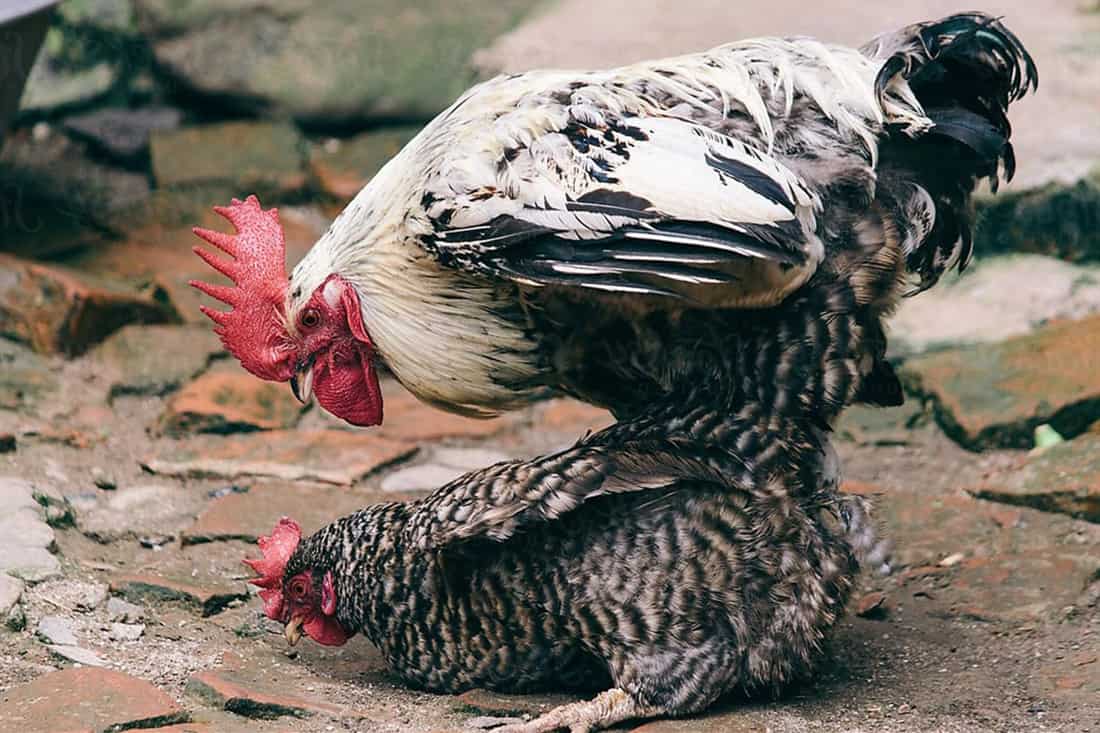
If you want to breed meat or egg-laying chickens, you need to keep fertile roosters in your flock for the hatching of chicks. Even though hens don’t need to mate before they lay eggs, mating enhances the hatching of those eggs. As such, without mating, a hen can waste her time brooding over eggs that might not hatch. Below are some of the ways you can keep your roosters fertile:
Good nutrition
Healthy roosters have no problem mating. To boost your roosters’ fertility, you need to feed them properly. Their diet should include both plant and animal food. Ensure the feed you buy has all the required nutrients in adequate proportion.
The required nutrients include protein, vitamins, minerals, carbohydrates, and fats. You can also give them specially-formulated foods like poultry vitamins and treats such as berries, cucumber, carrots, etc.
However, treats and other formulated foods shouldn’t replace their primary diet. Don’t give your roosters rotten foods, alcohol, or foods such as green potatoes, salty foods, raw beans, etc.
Recommended:
Rotation
Another way to boost your roosters’ fertility is to ensure that your rooster doesn’t get injured from excessive mating. The number of roosters in your flock should be high enough to serve the hens.
For instance, having just one or two roosters for a flock of 50 hens can put unnecessary strain on the roosters. Roosters can die from excessive mating. A rooster is enough to serve 10 hens. The ratio of hens to roosters in your flock shouldn’t be at a disadvantage to your roosters.
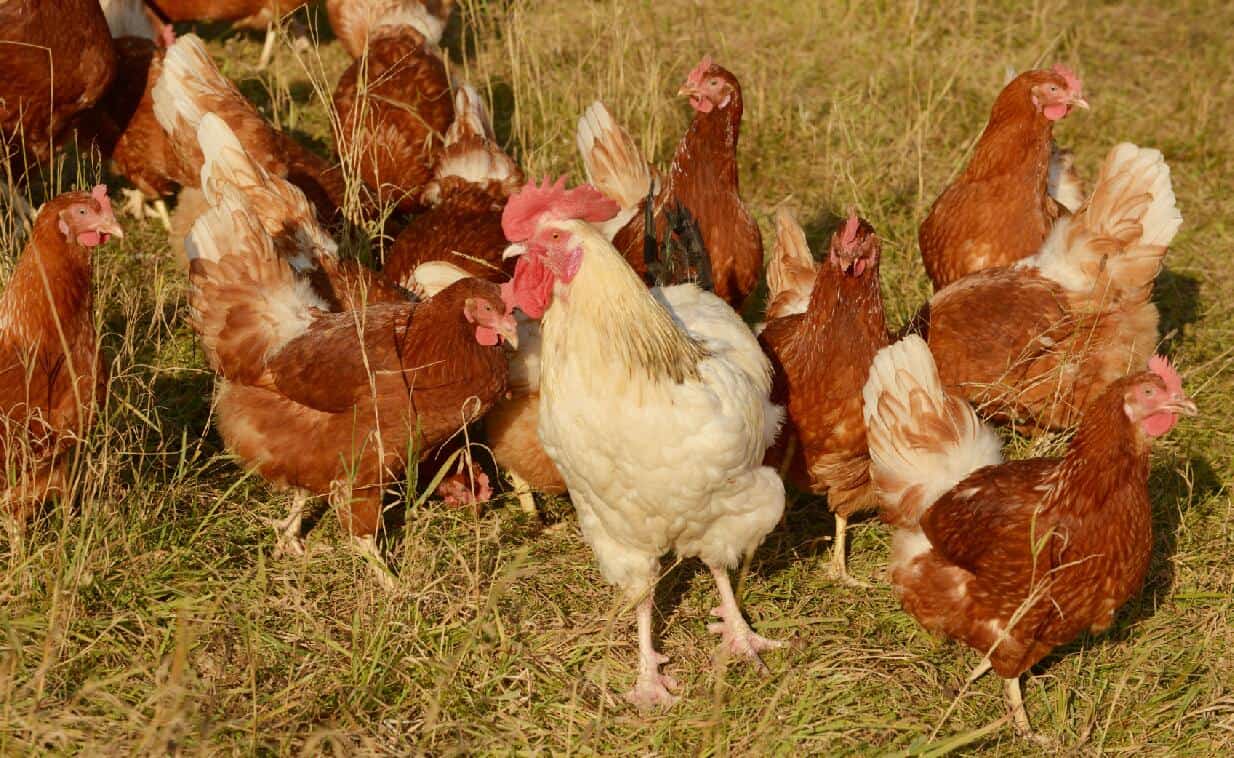
Proper shelter
If you want any significant results with breeding chickens, you have to provide them with a proper shelter. The coop must be secure enough to protect them from predators. Also, you need to disinfect it as many times as possible.
Both internal and external parasites aren’t favorable to successful chicken breeding. You need to change the bedding whenever it’s required too. Both roosters and hens are very sensitive to their environment; the quality of their environment often determines the quality of their health.
Vaccination
You might have to vaccinate your chickens if certain diseases are disturbing your flock or if you’re introducing new chickens into the flock. Some of the diseases you can protect your chickens from include fowl, cholera, Newcastle disease, etc. It’s advised you only vaccinate your chickens on the recommendation of a veterinary doctor.
Should You Have A Rooster In Your Flock?
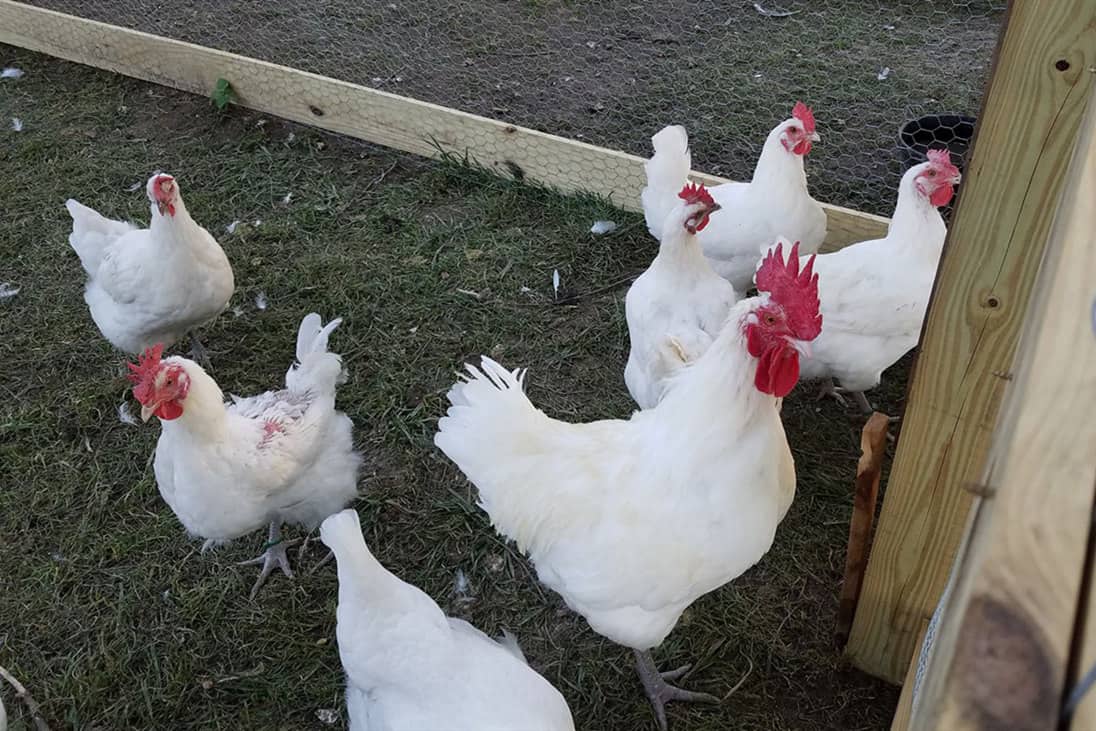
As we’ve discussed, roosters don’t have penises, but instead mate through a process called the cloacal kiss. there are other interesting facts about roosters. Here are some reasons your flock should contain some roosters.
Protection
Roosters are natural protectors. A rooster takes it upon himself to look out for the hens in his care. This is why his cry is the loudest when a predator is near. Roosters are very attentive and sensitive; you’ll find them scanning their environment to check if anything is amiss.
If they sense anything wrong, they will alert the others. In extreme cases, roosters fight the predators and lose their lives in the process. In addition, a rooster shepherds the hens from foraging into unknown territories.
If you allow your birds free-range, there are chances they’ll go beyond where you expect, especially if it’s a big space. Sometimes, this can land them in trouble. But with a rooster in your flock, you can rest assured that your chickens won’t wander off into their destruction.
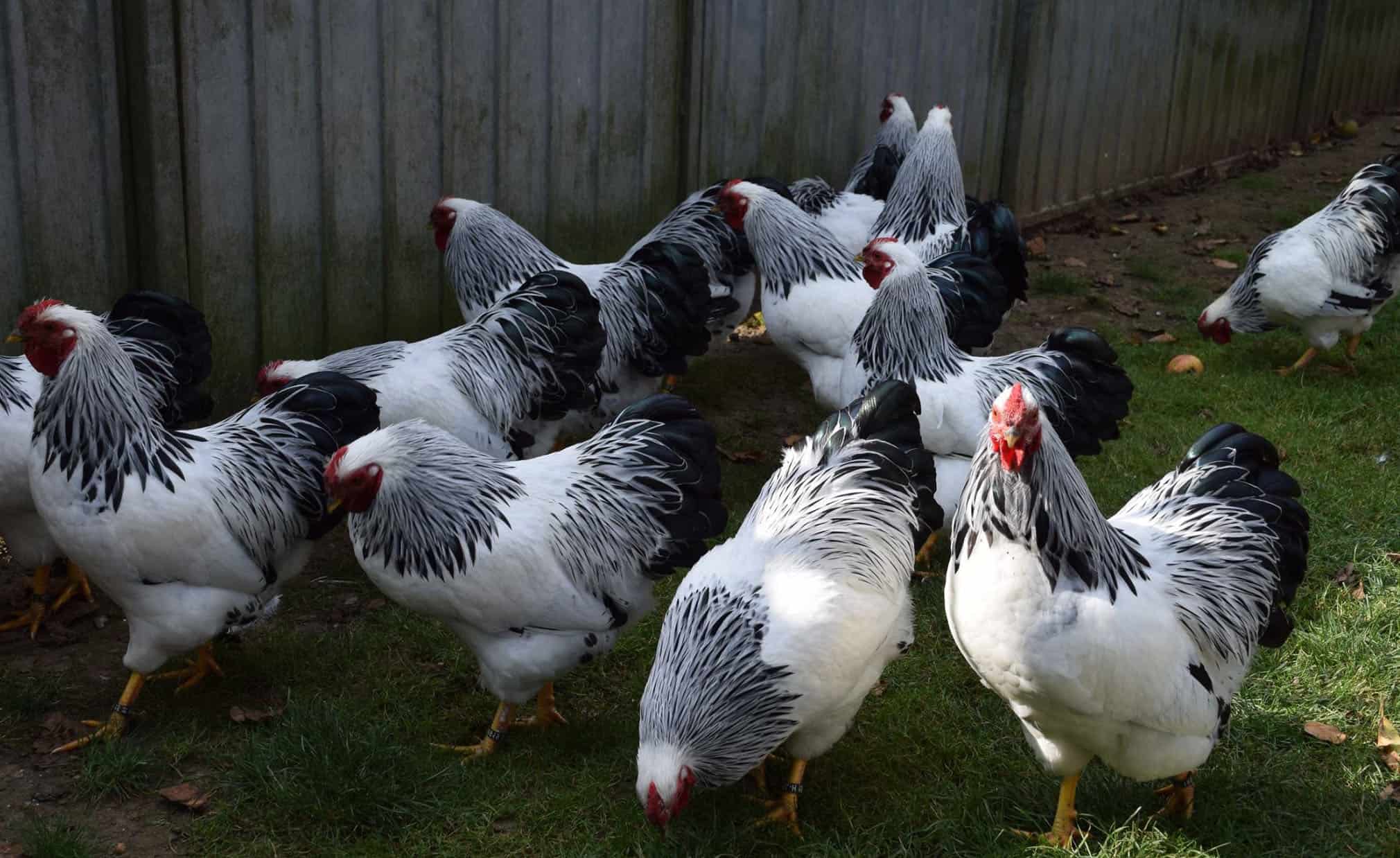
Provision
Roosters are also natural providers. They forage for food for the flock. Once they find food, they alert the hens after confirming that the food is safe to eat. The rooster allows the hens to eat to their fill before he does. With roosters in your flock, you can rest assured that your hens won’t go hungry.
Reproduction
Although hens can lay eggs without mating, the eggs need to be fertilized before they become chicks. Mating fertilizes eggs. You would have higher chances of the eggs in your flocks hatching into chicks after incubating if you have roosters to mate with the hens.
Order
Without a rooster in your herd, the hens will probably be picking on each other and fighting often. Occasionally, some hens die as a result of these fights.
However, a rooster helps to maintain order and harmony in the flock. Sometimes, he saves the weaker hens from the more aggressive ones and breaks up fights. A rooster naturally becomes the leader of a flock and assumes responsibility for others.
4 Things To Consider When Choosing Roosters For Your
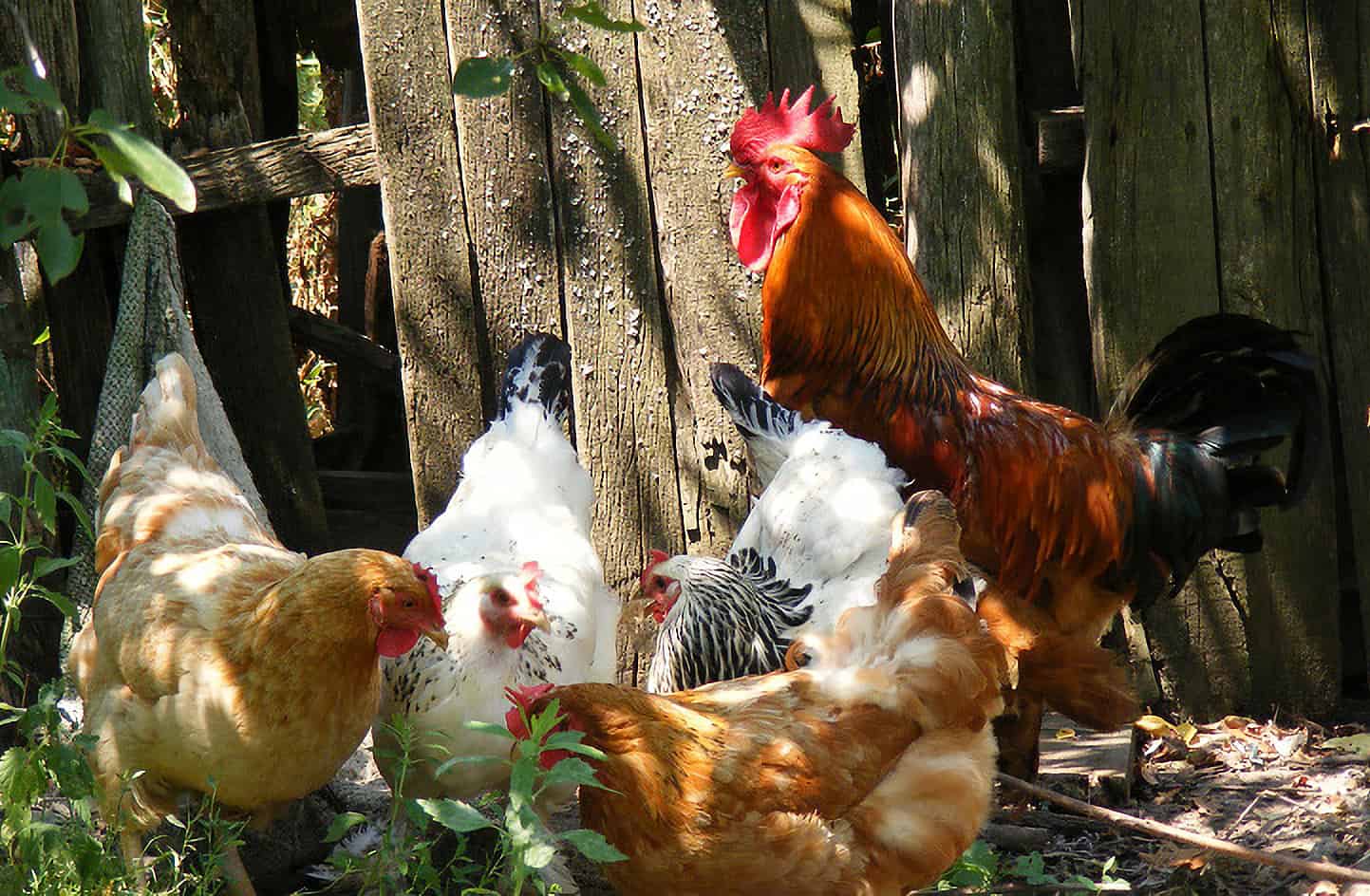
The breed of a rooster can greatly influence its characteristics and behaviors. You must identify what you want in a rooster before choosing to be in your flock. For instance, if you want a rooster that’s naturally healthy and strong, you have to go for chicken breeds that fit that specification. Here are essential tips to consider when choosing a rooster.
Fertility
The higher a rooster’s fertility, the higher your chances of collecting fertile eggs. Different rooster breeds have different fertility rates. For example, rooster breeds that are extremely docile or feathered tend to have low fertility rates and vice versa. To know more about a rooster’s fertility, consult those who have reared such a breed.
Breed
The rooster’s breed determines a lot about the rooster’s behavior. For instance, some chicken breeds, like Molasses, are naturally calm. If you’re aiming for a peaceful flock, you might prefer to avoid aggressive or hot-tempered roosters. They could hurt your hens during mating, especially when they don’t readily make themselves available for the process. Choose rooster breeds that tend to be calm in almost every situation.
Relationship with hens
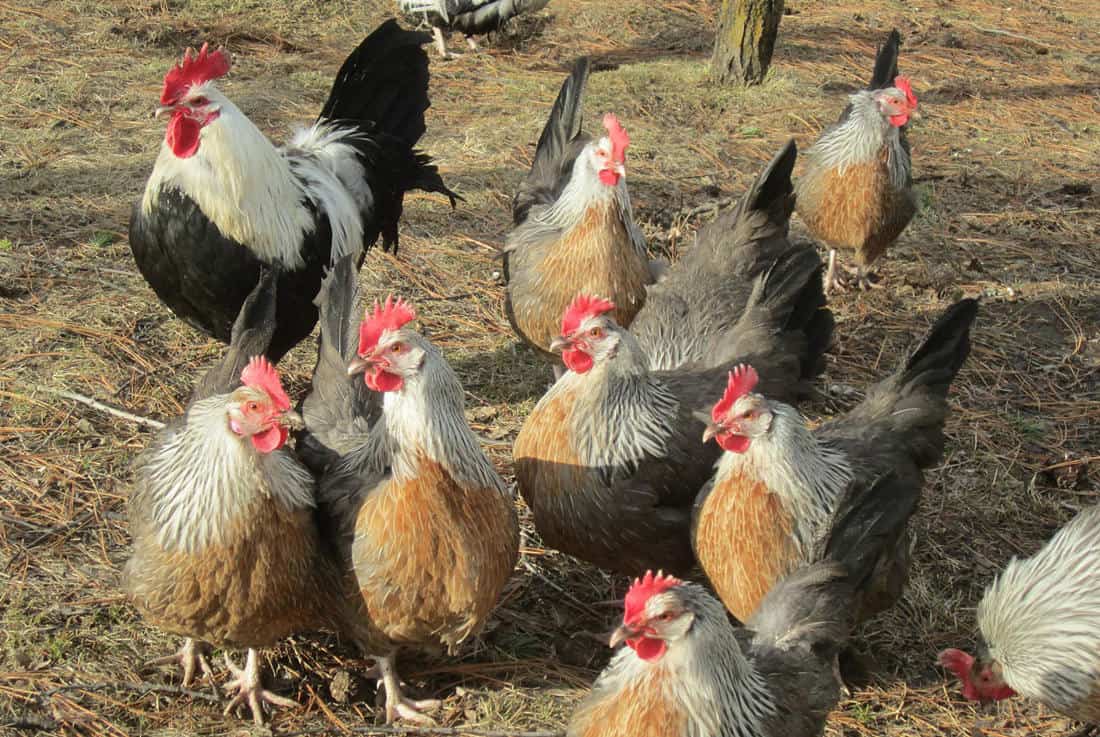
In addition, how the rooster relates with the hens in your flock is very important. Ideally, a rooster should be protective of his hens. However, if the hens in the flock are too many, the rooster can have a hard time keeping up with all of them.
As such, the ratio of hens to roosters in your flock should be practical. Also, remove violent roosters from your flock. Often, hens run away from forceful roosters. You can wear saddles on your hens to protect them from such. You can also put such roosters in flocks of older hens.
Purpose
Before you buy a rooster, you should identify why you want one in the first place. Factors such as keeping a variety of heritage chickens, keeping roosters for egg-laying purposes or meat, keeping roosters to establish order in your flock or to look out for your hens, etc., determine the breed you’ll pick.
For instance, if you want both meat and eggs, dual-purpose roosters are your best bet. Never buy a rooster that doesn’t fit into your purposes for the flock.
Summary
Roosters don’t have penises large enough to penetrate their partners’ reproductive organs, but they mate anyway. They do so through a process called the cloacal kiss. While the absence of roosters in your flock doesn’t affect egg-laying, they are crucial. Their presence ensures that the laid eggs successfully hatch into chicks and order is established in the flock.
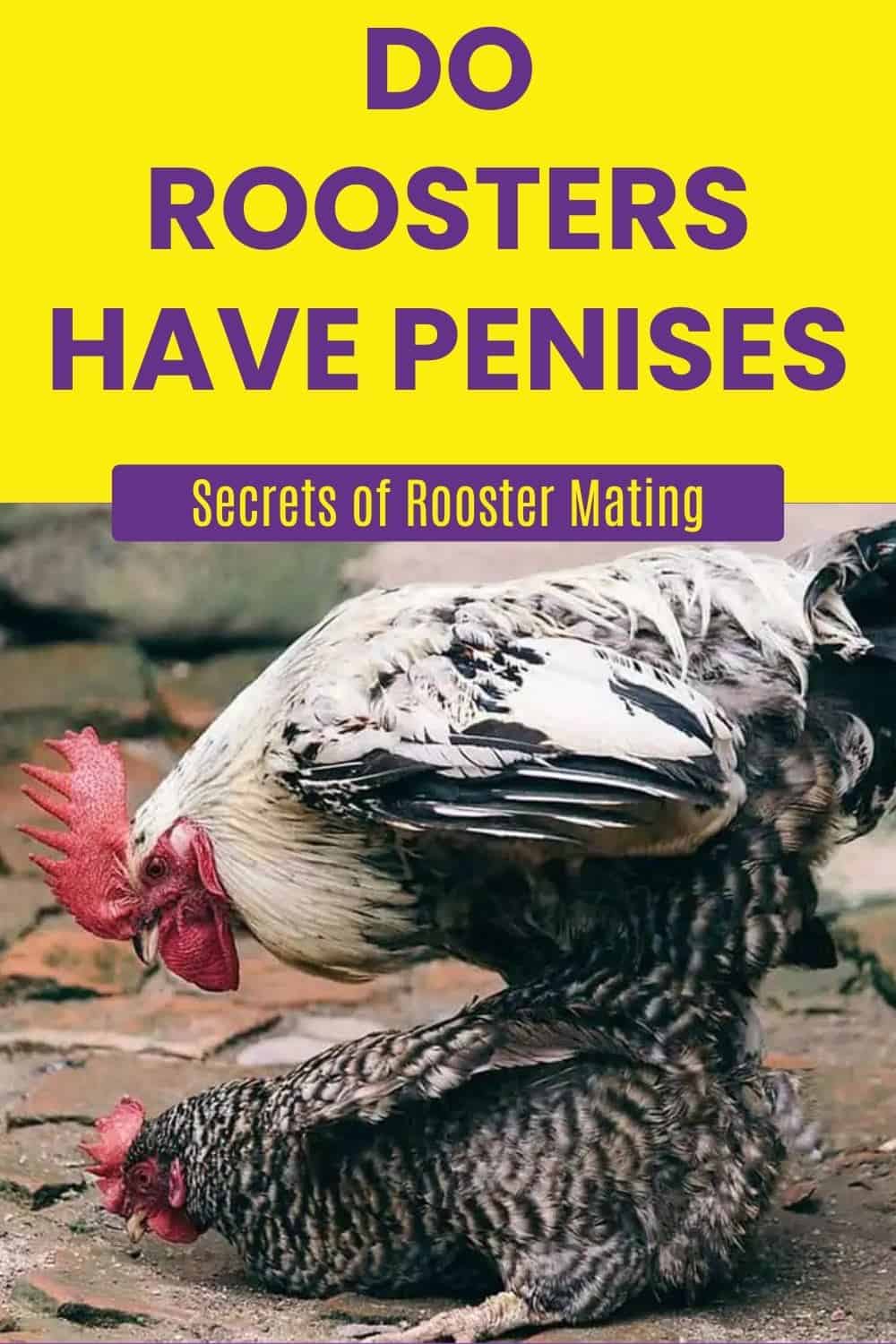

Joseph Hudson has been raising chickens for over 15 years. In 2018, he completed the Agriculture & Natural Resources program at Mt. San Antonio College. He currently raises over 1400 chickens on his 7.5-hectare farm. He keeps sharing his experience on raising healthy and happy chickens on Chicken Scratch The Foundry.






